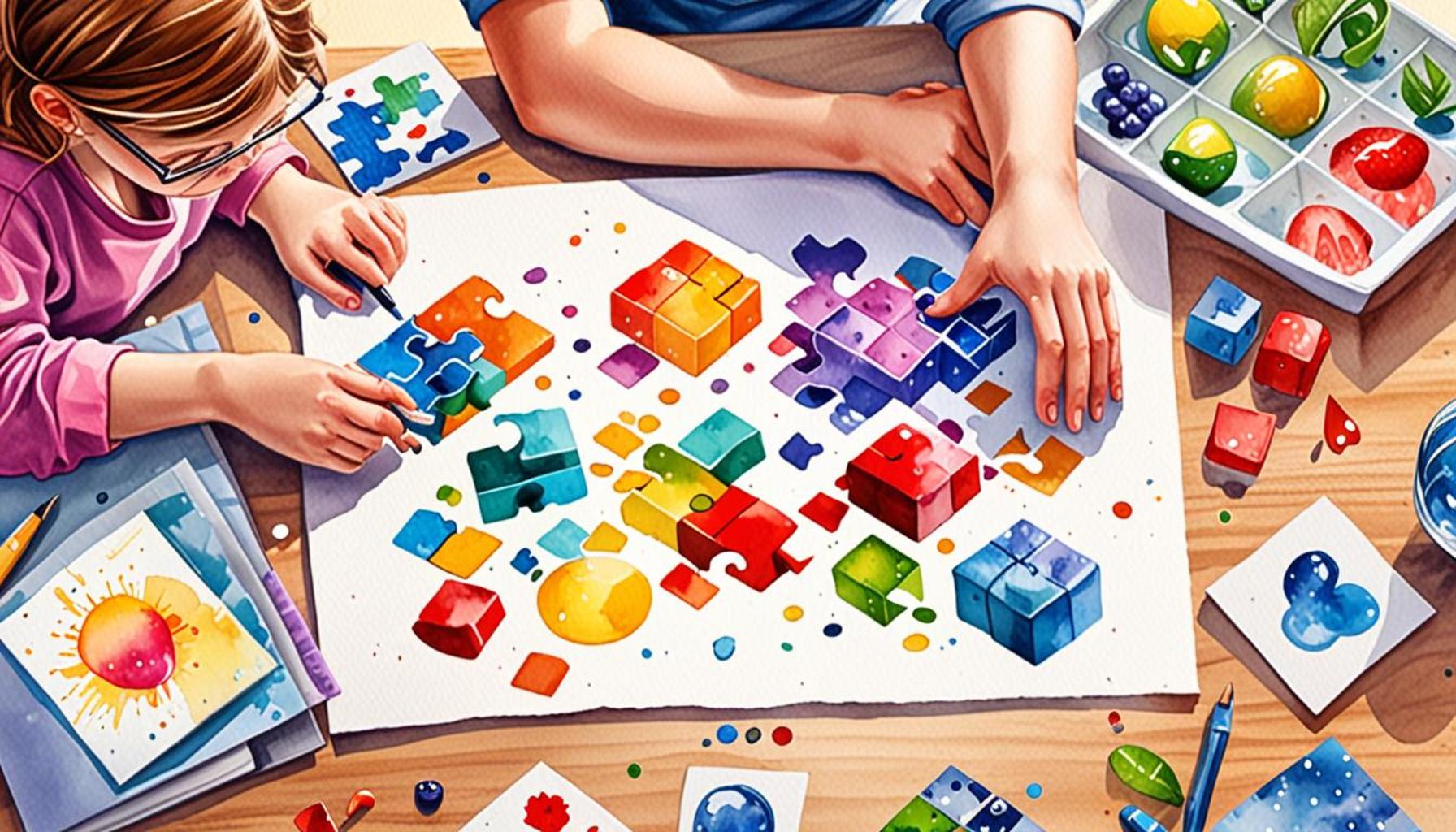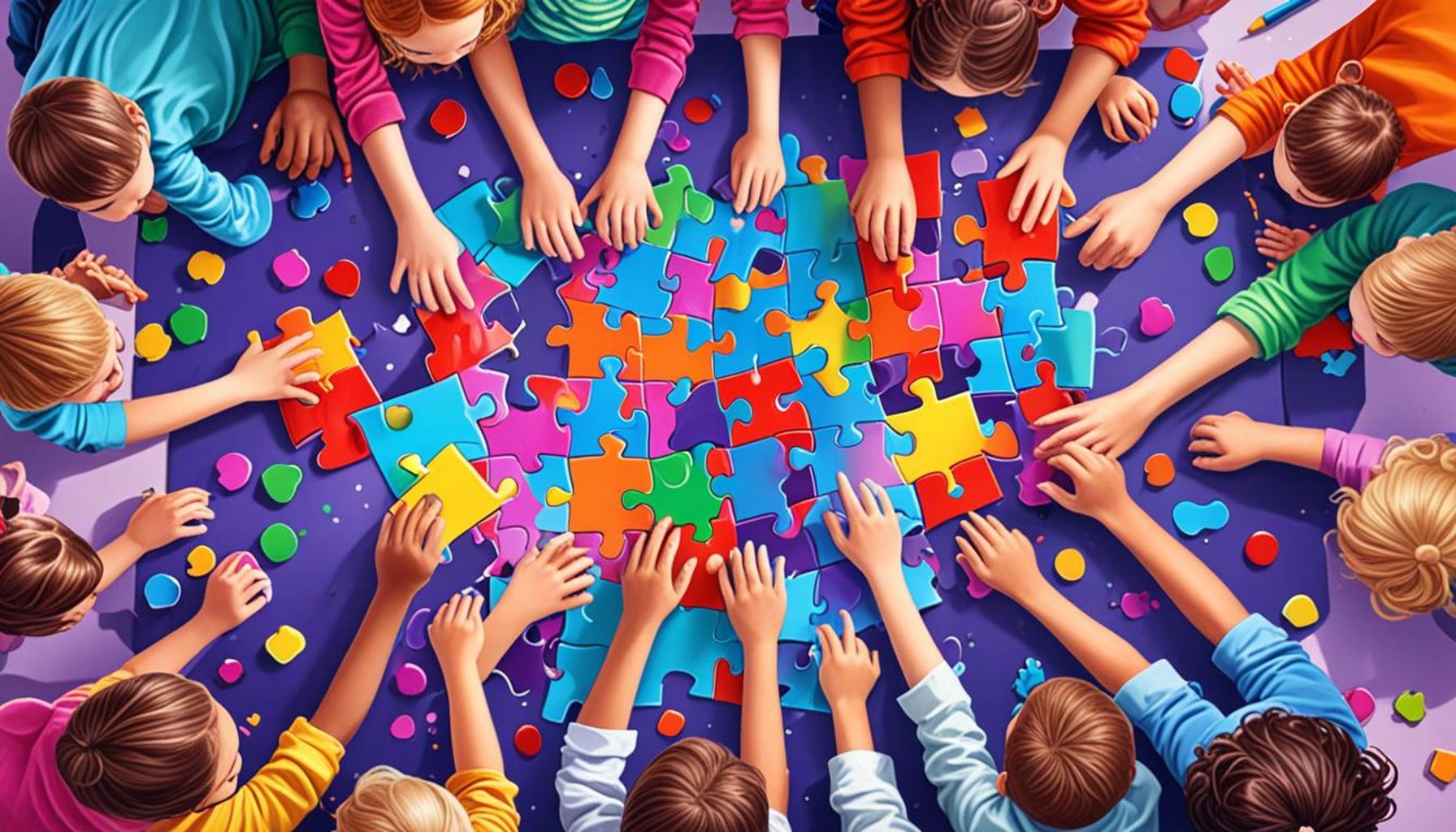Logic Games: Stimulating Cognitive Development in Adolescents

Unleashing Potential through Logic Games
As adolescents navigate the complexities of growing up, engaging their minds becomes essential. Logic games offer a powerful tool to enrich their cognitive abilities while ensuring they have fun. These games serve as an incredible bridge between play and serious mental exercise, creating an environment that encourages learning through entertainment.
One of the most notable benefits of logic games is how they enhance problem-solving skills. By engaging with diverse scenarios, adolescents learn to approach challenges logically and systematically. For instance, playing games like chess instills a strategic mindset, compelling players to foresee the consequences of their moves well ahead. This foresight translates into real-life problem-solving abilities, where young individuals often face unexpected challenges in academics and personal life.
Moreover, logic games promote critical thinking, requiring players to analyze situations and make decisions swiftly. Take Sudoku as an example: players must not only fill in numbers but also identify patterns and deduce where each number fits based on complex rules. This analytical approach cultivates a mindset where weighing options becomes second nature, ultimately enhancing decision-making in various life aspects, from managing finances to resolving conflicts.
In addition to these benefits, engaging in logic games boosts memory. Many games involve recognizing and recalling patterns, which can significantly strengthen memory retention. Games like memory matching cards challenge adolescents to remember the locations of various cards, paving the way for improving both short-term and long-term memory. Such skills can prove invaluable in academic settings where rote memorization plays a critical role in subjects like science and history.
Recent research underscores the importance of cognitive development during adolescence, indicating that engaging in intellectually stimulating activities can lead to improved academic performance, heightened creativity, and even better social interactions. Particularly in a fast-paced world where quick comprehension and adaptability are paramount, logic games can be a key factor in fostering these crucial skills.

Some popular examples of logic games include:
- Sudoku: A number placement puzzle that stimulates logical reasoning and pattern recognition.
- Chess: A strategy game that encourages foresight and planning, often referred to as a “battle of minds.”
- Puzzles: Jigsaw and logic puzzles enhance visual-spatial coordination and critical thinking.
- Escape rooms: Fun, team-based challenges that require players to think critically under pressure, often fostering teamwork along with problem-solving.
Engaging in these activities not only entertains but also provides a strong foundation for developing essential life skills. Exploration of various logic games is key to guiding adolescents toward enhanced cognitive growth. By diving deeper into the world of logic games, young minds can unlock doors to an intellectually stimulating future, empowering them to tackle life’s challenges with confidence and creativity.
Dive Deeper: Click here to explore the benefits of gamifying your memory training
The Impact of Logic Games on Adolescent Minds
As teenagers grow and experience various life transitions, the need for cognitive stimulation cannot be overstated. Logic games play an integral role in nurturing intellectual growth, offering a variety of mental challenges that stimulate areas of the brain responsible for critical thinking and reasoning. Recognizing the importance of these skills can lead to a more engaged and successful approach to learning in adolescent years.
One essential aspect of logic games is their ability to foster creative thinking. Many games encourage players to think outside the box, devising unique strategies and solutions to complex problems. For example, engaging in escape room challenges not only enhances logical reasoning but also encourages out-of-the-box thinking as players must communicate, collaborate, and innovate to solve intricate puzzles. This creative approach is invaluable for adolescents, as it equips them with the ability to tackle academic tasks and unexpected scenarios with ingenuity.
Additionally, logic games often involve social interaction, which is crucial during adolescence. Team games or competitive activities like chess help adolescents build teamwork, sportsmanship, and communication skills. Participating in such collaborative environments promotes essential interpersonal skills, allowing teenagers to develop empathy and understand different perspectives. This skill set is often a precursor to various outcomes in life, from better school projects to more harmonious social interactions.
Several studies indicate that students who engage in logic games tend to have better focus and concentration. These games require sustained attention and critical observation, essential skills for academic success. By concentrating on challenging tasks, adolescents learn to filter distractions and enhance their cognitive performance, enabling them to tackle their coursework with greater efficiency.
Moreover, the enhancement of logic and reasoning skills through these games has been linked to improved academic results. For example, a study published in the journal “Child Development” revealed a positive correlation between regular participation in strategy-based games and higher grades in mathematics and science subjects. As young learners experience logical reasoning exercises in enjoyable formats, they are more likely to translate this understanding to broader academic contexts.
Some notable benefits of engaging in logic games include:
- Improved analytical skills: Logic games require analysis and reasoning, which strengthens critical thinking.
- Better decision-making abilities: Through practice, adolescents become adept at evaluating options and making informed choices.
- Heightened creativity: Problem-solving through play encourages inventiveness and innovation.
- Strengthened memory and focus: Many logic games demand attention to detail, enhancing memory retention and concentration.
By incorporating logic games into their routines, adolescents can thrive in an environment that nurtures cognitive development. As parents, educators, or mentors, guiding young individuals toward these stimulating activities can contribute significantly to their intellectual progression. Exploring the rich offerings of logic games allows adolescents to sharpen their minds while enjoying the intricacies of strategic play, ultimately preparing them for the myriad of challenges they will face in the future.
| Category | Advantages |
|---|---|
| Cognitive Skill Enhancement | Improves problem-solving abilities and enhances critical thinking skills essential for academic success. |
| Social Interaction | Encourages teamwork and communication through collaborative gameplay, cementing valuable social skills during adolescence. |
The theme of “Logic Games: Stimulating Cognitive Development in Adolescents” is pivotal as it delves into the multifaceted advantages that these games offer. By embracing logic games, adolescents not only engage in fun, interactive activities but also bolster their mental faculties—an essential aspect of their formative years.When discussing the role of logic games in enhancing cognitive skills, one cannot overlook how they actively improve problem-solving abilities while cultivating critical thinking skills. This improvement is crucial for academic achievement and equips teenagers with necessary tools to navigate real-life challenges. Furthermore, these games foster social interaction among peers. By participating in group activities and cooperative games, adolescents develop teamwork skills and learn the importance of effective communication. These elements are integral to solidifying relationships and collaborating seamlessly in various life scenarios. Logic games promise not just personal development but also contribute to nurturing well-rounded individuals capable of thriving both intellectually and socially. The vibrant world of logic games awaits exploration, revealing endless opportunities for sharpening the mind and building meaningful connections.
DISCOVER MORE: Click here to dive deeper
Exploring the Diverse Range of Logic Games
The universe of logic games is diverse, catering to a broad array of interests and skills. This variety not only keeps adolescents engaged but also addresses different aspects of cognitive development. Parents and educators have a plethora of options at their disposal, with each game offering unique benefits that can enhance several cognitive faculties.
One prominent category of logic games includes strategy-based board games. Games such as “Catan” and “Ticket to Ride” promote critical thinking as players must formulate strategies while adapting to the ever-changing dynamics of the game board. These games require participants to assess resources, plan for future moves, and negotiate with others, thus enhancing skills in analysis, foresight, and collaboration. The blend of social interaction and strategic planning not only makes these games enjoyable but also cultivates a mindset adept at problem-solving.
Furthermore, the rise of digital logic games has made these stimulating activities even more accessible. Mobile applications and online platforms now offer a wide variety of puzzles and challenges, ranging from Sudoku and crosswords to advanced logic puzzles. These digital formats can be particularly appealing to adolescents who are accustomed to technology, providing an engaging alternative to traditional board games. The convenience of accessing these games on mobile devices means that teens can engage in cognitive exercises anywhere and anytime, promoting consistent practice.
For those interested in mathematical reasoning, games such as “Rush Hour” can be especially beneficial. This logic-based puzzle game requires players to plan and execute their strategy, nudging their mathematical problem-solving skills to the forefront. Such activities can bolster skills that are essential for high-stakes examinations, particularly in mathematics and science, where logical reasoning is paramount.
A fascinating trend in education is the incorporation of escape room challenges into school curricula. These immersive environments urge adolescents to solve mysteries and unravel puzzles, all under the pressure of time. Reports indicate that schools integrating these experiential learning methods have observed increased engagement among students, with many claiming notable improvements in team collaboration, logical reasoning, and resilience. This holistic approach to education not only enriches cognitive development but also enhances the learning experience through active participation.
Interestingly, the benefits of logic games extend beyond an intellectual challenge. Regular engagement in these games has been linked to improved mental health in adolescents. A study published in the “Journal of Adolescence” noted that participating in strategy games could reduce anxiety and enhance self-esteem. When young individuals successfully navigate complex problems or collaborate effectively in team endeavors, they often experience a boost in confidence, which can significantly bolster their overall well-being.
Moreover, early exposure to logic games primes adolescents for future academic and career opportunities. Logic and reasoning skills are not only crucial for STEM fields but also for careers in business, law, and technology. By nurturing these competencies through engaging logic games, adolescents can pave the way for future success in an increasingly competitive landscape.
Ultimately, the exploration of logic games within educational and recreational contexts can yield profound benefits for adolescents’ cognitive and social development. As awareness grows around the positive implications these games can have on young minds, a collective effort from parents, educators, and communities can play a pivotal role in fostering a generation of innovative, analytical thinkers.
DIVE DEEPER: Click here to learn more
Conclusion: The Lasting Impact of Logic Games on Adolescent Development
In summation, logic games present a powerful avenue for stimulating cognitive development in adolescents. By engaging in a wide variety of games ranging from traditional strategy board games to modern digital puzzles, young individuals can enhance their critical thinking, problem-solving, and collaborative skills. As the landscape of education continues to evolve, integrating these stimulating activities can unlock new pathways for learning, making the process both enjoyable and educational.
Moreover, the social benefits associated with these games cannot be overlooked. The interactions fostered by collaborative play encourage essential life skills such as negotiation, teamwork, and resilience, which are invaluable in both academic and professional settings. As studies indicate, participation in logic games not only sharpens cognitive abilities but also promotes emotional well-being, suggesting that games can be a tool for more than just entertainment.
Looking ahead, it is imperative that parents, educators, and communities embrace the potential of logic games to prepare adolescents for the complexities of the modern world. By prioritizing these engaging experiences, we can cultivate a generation of innovative thinkers who are equipped to tackle challenges across various fields. As the benefits of logic games become more widely recognized, there is a tremendous opportunity to influence the trajectory of young lives—nurturing not just intellectual prowess but a more holistic development that encourages lifelong learning and adaptability.
As we delve deeper into the intersection of play and development, it becomes increasingly clear that fostering an environment where logic games are accessible and celebrated could yield lasting positive change in our youth. The future is bright for those who embrace the power of play.


